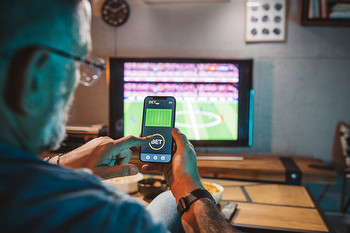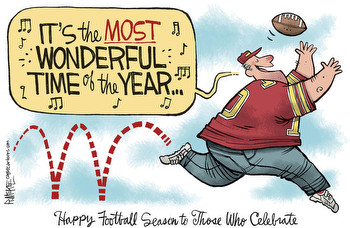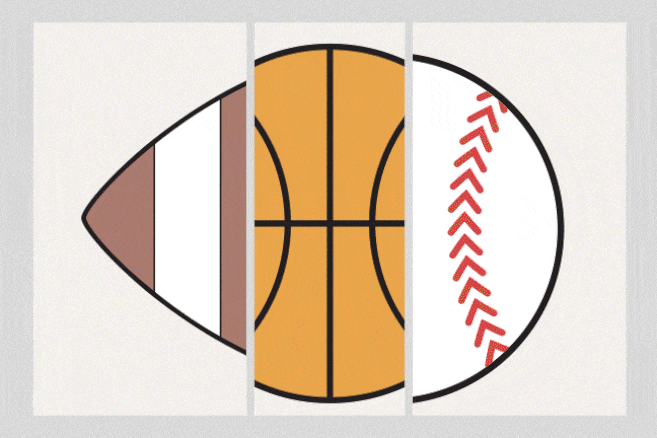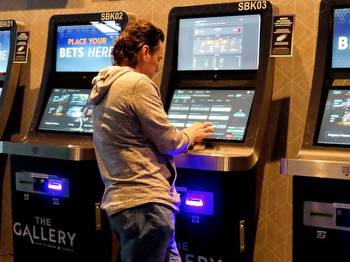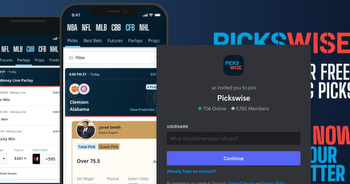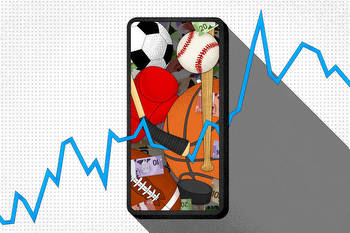Sports betting grows more addicting as technology evolves

MEMPHIS, Tenn. - One in three Americans are expected to watch the Super Bowl on Sunday.
Of those watching, a record 67.8 million people are expected to place more than $23 billion in bets, according to the American Gaming Association (AGA).
'It's action': Why is sports betting so addicting?
John Martin lives and breathes sports: He's a host of "Jason and John" on 92.9 ESPN FM and a sports bettor of seven years.
"It's action," he explained. “Man, I could turn on a random college basketball game and even though I might not be a fan of either team, all of a sudden I have a rooting interest now because my money is on the line, right?"
As a professional sports better, Martin acknowledges he has the time and resources to research what teams are most likely to win in the sports where he places his bets.
"Most people don't have the time I have," he said. "I don't win every bet I place. I'm just hoping to win 54%-55% of the time."
While his losses are disappointing, he told FOX13 the wins are exhilarating.
“Sometimes luck's on your side, sometimes it's not," he explained. "That's just the variance of it. Most people cannot handle that."
Economic impact
“It's going to be a huge weekend for betting," said David Forman, vice president of research for the American Gaming Association. "The Super Bowl is the single biggest sporting event of the year.”
38 states in the U.S. have now legalized sports betting.
Of the sports bets placed last year, 92% were online, according to the AGA.
"That's how consumers want to bet on sports," Forman said. "So they don't need to go to a casino or go to a lottery location, right? They want to be able to enjoy sports betting while they're at the bar or at their friend's house."
Advocates for the industry say sports bets have always existed everywhere. However, up until a few years ago, bettors used the black market, which had major financial and safety risks.
"All the people who are betting on the game this week didn't just wake up the day it was legalized in their state and decide to start betting on sports," Forman said. "They had to go through other channels. And now they're able to take their business to a regulated business that supports jobs and pays taxes to the state government.”
Technology triggers gambling addicts
Advancing technology has made it more difficult for some gambling addicts to avoid their triggers, professionals say.
“In the last three or four years, gambling has moved from a trip to a reach for the phone," said James Whelan, executive director of the Gambling Clinic and a psychology professor at the University of Memphis.
He said gambling addicts are now bombarded with ads and push alerts on their phones from various apps.
On top of that, professional sports are embracing and discussing sports betting more than ever before.
“Sports and gambling have become so intertwined," he explained. "It used to be, professional leagues were never talked about gambling. They kept this arm's length away from any reference to betting. It's now part of their program.”
“The average person watching this right now should definitely only do it for amounts that they consider fun," Martin said. "(Only bet) an amount that if you lose it or win it is not going to change your life in any tangible way, period.”
If you or a loved one is struggling with addiction, you can call the Gambling Clinic in Memphis at 901-678-STOP or the National Problem Gambling Helpline at 1-800-GAMBLER.













